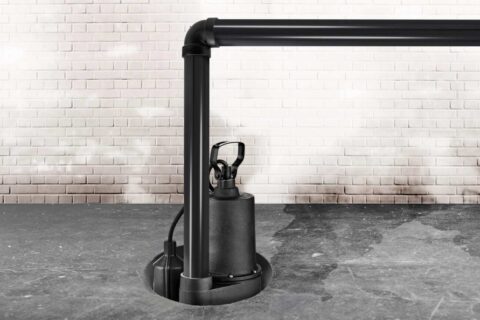Does Every House Need a Sump Pump?
A sump pump is one of those systems in your home that you don’t think about until it isn’t working. You might also discover that you don’t have a sump pump, or your sump pump isn’t working when you find water in your basement, crawlspace, or other low-lying areas of your home. Before you need a sump pump, consider if your home even needs a sump pump.
What is a sump pump?
A sump pump is a mechanized water pump located in a lined, or prefabricated, pit that automatically turns on when water in the pit reaches a certain height. The excess water is then moved far enough away from your home that it isn’t continuously pumped out to a well, municipal drain, pond, or grassy area. When the water reaches below that certain height, the sump pump will automatically turn off. The sump pump is powered by electricity, so many homeowners have opted to have the sump pump on a battery backup in case power is lost the sump pump can still operate effectively. If you don’t know where your sump pump is located, check the lowest point of your basement, crawl space, or other area of your home.
When do I need a sump pump?
A sump pump is not required in a home, but there are many situations when the investment in a sump pump is worth the time and money. If your home has, or experiences one or more of any of the following circumstances, contact Budget Basement Waterproofing for further consultation to determine if your home needs to have a sump pump installed:
- Your home has a basement (finished or unfinished) or crawlspace
- Your home is in an area with high flood risk or periods of heavy precipitation
- Your home’s foundation is vulnerable to excess ground water from poor soil drainage. Poor soil drainage is most often associated with water runoff moving toward your home instead of away from your home.
- If you have experienced flooding in your basement.
- Your home is below the local water table
- Your home is near a body of water
- Your family has allergies and you need to prevent mold and mildew growth
These are instances when you need to call a professional for further advice because water that seeps or pours into your home can damage the foundation by creating cracks and fissures. If the excess moisture is not removed there may be structural issues as well as health issues that may develop from mold and mildew. A sump pump can also aid in protecting your belongings from being soaked and/or ruined if water were to get into your home.
Every home is different with unique characteristics that go into determining whether or not your home needs a sump pump. If you have further questions or questions that you believe are unique to your home, please contact Budget Basement Waterproofing to answer your questions. We would love to put our 55 years of experience to work for you and your home.

